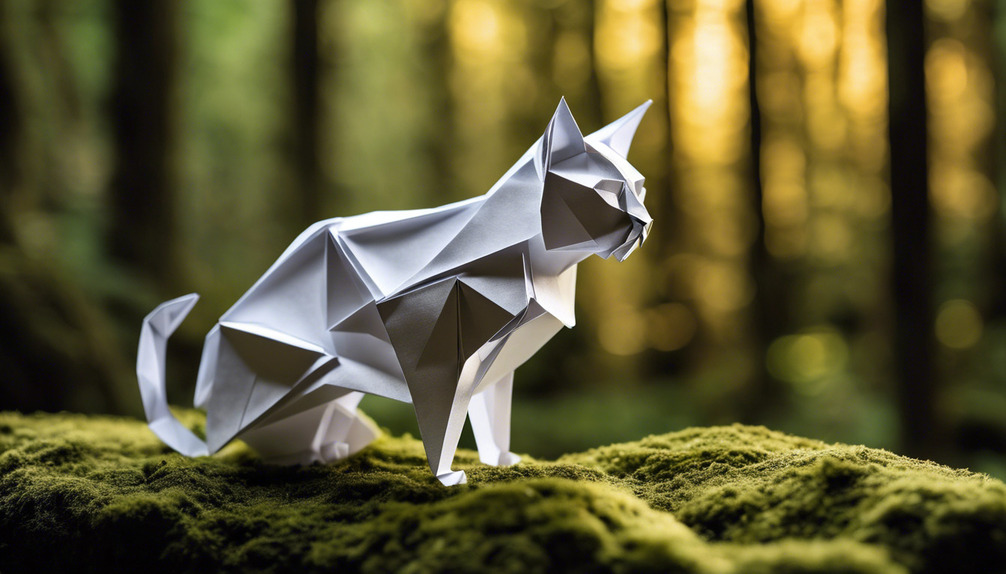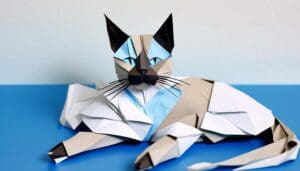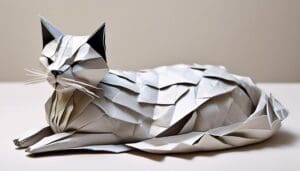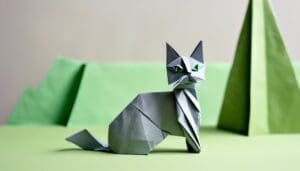As cats enter their golden years, their kidneys may not be as robust as they once were, and it’s up to you to help support these vital organs.
Senior cats may show signs of declining kidney function through changes in energy levels or appetite. It is important to provide specialized care to maintain their health and comfort by adjusting their diet, ensuring proper hydration, and creating a suitable environment for them.
With the right strategies, you can help your cat maintain a good quality of life, but where should you start, and what are the signs that their kidneys need extra support? Let’s explore the gentle, yet effective ways you can be there for your cat, ensuring their twilight years are as golden as the sunbeams they so enjoy.
Key Takeaways
- Increased thirst and frequent urination may be early signs of kidney disease in senior cats.
- Proper hydration is vital for supporting kidney health in senior cats.
- Low phosphorus diets and controlled dietary protein can support kidney health in elderly cats.
- Certain medications and regular veterinary check-ups are important for managing and supporting kidney function in senior cats.
Recognizing Kidney Disease
If your senior cat is exhibiting increased thirst and more frequent trips to the litter box, it may be an early sign of kidney disease, a common ailment in older felines. Chronic Kidney Disease (CKD) can creep up silently, and early diagnosis is crucial to slow the progression of CKD and maintain your beloved cat’s quality of life.
Pay close attention to subtle changes. Aside from increased thirst and urination, signs of renal failure may include weight loss and vomiting. These clinical signs suggest that your cat’s kidneys struggle to filter waste products from the blood efficiently.
Don’t hesitate to consult your veterinarian. Blood tests can reveal much about kidney function and are instrumental in confirming whether your cat is facing this challenge. The earlier you detect these issues, the better you can manage your cat’s health.
Importance of Hydration
Your beloved senior cat’s health hinges on staying well-hydrated, a simple yet vital aspect of their care. Ensuring they’re drinking enough water each day can ward off the risks associated with dehydration, which can be particularly harmful to their delicate kidneys.
Water Intake Optimization
Ensuring your elderly cat stays properly hydrated is a key step in supporting their delicate kidney function and overall health. As kidney disease advances, their ability to concentrate urine diminishes, making it crucial for you to increase water intake. Failing kidneys need help to flush toxins, and that’s where your gentle care comes in.
Offer a variety of water sources like fountains or dripping faucets, as these can entice your cat to drink enough throughout the day.
Consider providing canned food with a higher moisture content. This simple switch can significantly boost hydration and kidney support.
Dehydration Risks Mitigation
While optimizing water intake is a step in the right direction, it’s equally important to actively mitigate the risks of dehydration to safeguard your elderly cat’s kidney health.
Your devotion to their well-being means ensuring they drink lots of water throughout the day. Offer canned food rich in moisture to boost your cat’s intake of fluids. The savory allure of tuna juice can be an enticing way to encourage them to hydrate.
Remember, some cats are captivated by running water, so a fountain might be just what entices your cat to drink more.
Nutritional Adjustments
As your beloved cat reaches their golden years, it’s essential to consider how a low phosphorus diet can support their kidney health.
You can make mealtime more appealing and ensure they stay hydrated by adding a splash of tuna juice or a touch of gravy to their dishes.
Low Phosphorus Diets
To safeguard your elderly cat’s health, adopting a low phosphorus diet can be a pivotal step in managing their chronic kidney disease with tenderness and care. As you pour love into every meal, remember that reducing phosphorus intake is essential to alleviate the burden on their delicate kidneys and slow the progression of renal failure.
Consult with your vet for a blood test to tailor your cat’s diet to their specific needs. By focusing on low phosphorus and controlled dietary protein, you’re not just offering food—you’re providing a gentle embrace for their aging body, protecting them from further kidney damage.
| Embrace with Care | Support Through Diet |
|---|---|
| Gentle Kidney Care | Low Phosphorus Meals |
| Tailored Nutrition | Customized for CKD |
| Compassionate Feeding | Attentive to Elderly Felines |
| Informed Choices | Blood Test Guidance |
Each bite is an act of kindness, a testament to your unwavering commitment to their well-being.
Hydration and Nutrition
Proper hydration and tailored nutrition can be life-giving to your elderly cat, supporting their kidney health with every sip and bite. As cats age, the risk of Kidney Disease (CKD) increases, making mindful adjustments to their diet crucial.
Introducing a prescription diet that’s low in protein and phosphorus can significantly ease the burden on your cat’s kidneys. To combat water loss and encourage hydration, consider blending water, tuna juice, or low-sodium broth into their food. This can make meals more appealing and help increase fluid intake.
A dripping faucet or a water fountain can also coax your cat to drink more. Canned food, rich in moisture, alongside dietary supplements like omega-3 fatty acids, can further support kidney function and overall well-being.
Senior Cat Diet Tips
Building on the importance of hydration and nutrition, let’s explore how specific dietary adjustments can further support your senior cat’s kidney health.
| Aspect | Strategy | Benefit |
|---|---|---|
| Protein & Phosphorus | Adjust levels in the diet | Supports kidney function |
| Hydration | Mix in tuna juice, gravy, or low-sodium broth | Encourages water consumption |
| Meal Temperature | Warming food | Entices eating |
| Prescription Diets | Use diets that restrict protein and phosphorus | Manages kidney disease |
| Food Type | Offer canned food with higher moisture | Supports hydration |
Cats with CKD require proper management, and a diet change can be pivotal. Prescription diets are specially formulated, but don’t overlook simple tricks like warming food to coax your cat to eat. Appetite stimulants can also be considered if your senior cat’s interest in food wanes.
Medication for Kidney Support
While managing your senior cat’s kidney health, certain medications can be integral in supporting their daily function and overall well-being. Kidney disease, particularly in cats over 15 years, can compromise their ability to filter the blood efficiently. You’re doing a great service by considering medication for kidney support as part of their care.
Appetite stimulants may be recommended to encourage your beloved cat to eat, ensuring they receive the necessary nutrients to thrive. Anti-nausea medications can also play a crucial role by alleviating gastrointestinal discomfort, a common symptom of renal issues. This compassionate approach helps maintain their comfort and appetite.
Supplements such as fish oil and calcium carbonate could be beneficial. They’re thought to assist in safeguarding kidney function, providing a gentle yet effective aid in your cat’s daily routine. If high blood pressure is a concern, your vet might prescribe appropriate medication to manage this condition, further protecting kidney health.
For early renal support, potassium supplements can help balance electrolytes, while antibiotics are key in treating and preventing kidney infections. Your dedication to administering these medications reflects your deep commitment to your senior cat’s quality of life.
Monitoring Blood Pressure
Elevated blood pressure isn’t just a human concern; it’s a significant issue for cats as they enter their golden years and face the risk of kidney disease.
By monitoring blood pressure, you’re taking a proactive step. Here’s what you can achieve:
- Detect Early Signs: Catching high blood pressure soon can prevent damage to not only the kidneys but other organs too. It’s a silent challenge that, without early detection, can lead to serious complications.
- Manage Progression: Cats in renal failure may have a better prognosis with controlled blood pressure. You’re helping to slow the progression of the disease and improve their quality of life.
- Preserve Vision: High blood pressure can harm delicate blood vessels in the eyes. Monitoring helps protect your furry friend’s eyesight.
Regular Veterinary Check-UpsJust as monitoring blood pressure is key to catching early signs of trouble, scheduling regular veterinary check-ups is vital for keeping track of your elderly cat’s kidney function and ensuring they receive the best possible care. As your cat ages, their kidneys may not work as well as they once did, and staying ahead of any potential issues is a gesture of your deep love and commitment to their well-being.
During these check-ups, your vet will conduct blood tests to check BUN and creatinine levels, which can indicate how well your cat’s kidneys are filtering waste. They’ll also measure urine specific gravity to check for dilute urine—a sign of kidney disease. Detecting changes early can mean the world for your older cats, allowing for timely adjustments in their treatment plan.
Remember, as kidney disease progresses, symptoms like weight loss may become evident. Regular veterinary check-ups help cats by managing these symptoms and maintaining their quality of life. Encouraging your cat to drink more water is also beneficial for their kidney health.
Palliative Care Approaches
When your elderly cat faces the challenges of kidney disease, adopting a palliative care approach can profoundly enhance their comfort and quality of life. Understanding the tender needs of your senior cat, palliative care approaches focus on managing symptoms while nurturing their well-being.
Consider these compassionate strategies:
- Nutritional Support: Encouraging cats to eat with appetizing options like chicken broth can provide both hydration and nourishment. Warmth and enticing aromas can make meals more appealing, helping your pet feel loved and cared for.
- Hydration Therapy: Subcutaneous fluid administration helps maintain hydration and dilutes toxins, easing the kidneys’ workload. This therapy aids the body in its struggle to concentrate the urine and flush out products in the bloodstream that can cause discomfort.
- Comforting Environment: A peaceful, stress-free space allows your cat to rest undisturbed. Soft bedding, quiet rooms, and keeping essential resources like food, water, and litter boxes within easy reach are all parts of making your pet feel secure and content.
Working closely with your veterinarian, you can tailor these palliative care approaches to the unique needs of your cat, ensuring their days are filled with as much comfort and joy as possible.
Frequently Asked Questions
How Can I Help My Senior Cat With Kidney Disease?
You can aid your senior cat by providing prescription diets, ensuring ample hydration, and administering necessary medications. Frequent vet check-ups and creating a stress-free environment are also essential for their wellbeing.
What Can I Give My Cat to Improve Kidney Function?
You can provide prescription diets, promote plentiful water intake, and pursue pharmaceutical aids like appetite enhancers or anti-nausea meds to manage and improve your cherished cat’s kidney condition with care and compassion.
How Long Can an Elderly Cat Live With Kidney Disease?
You’re wondering about your cat’s lifespan with kidney disease. While it varies, with proper care, some cats live 1-2 years or longer, bringing more cherished moments for you both to share.
What Is the Best Senior Cat Food for Kidney Disease?
You’re seeking the best senior cat food—opt for brands tailored to aging pets, focusing on low phosphorus and moderated protein, infused with essential nutrients that cater to their delicate health needs.




